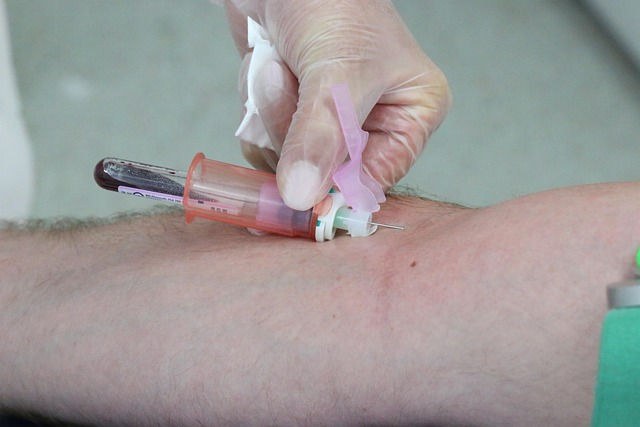Iron deficiency anemia, a common blood disorder caused by low iron levels, impacts red blood cell production and oxygen transport. The UK emphasizes early detection through simple tests like the UK Testosterone Blood Test, which includes comprehensive counts. Key diagnostic tests include full blood count (FBC) and specialized iron-related tests to assess severity. Treatment involves iron supplementation, dietary changes, and addressing underlying causes under healthcare provider guidance to restore optimal iron levels and health.
In the UK, iron deficiency anaemia (IDA) is a common health concern. Understanding its impact on the body is crucial for early intervention. This article explores how blood tests play a vital role in diagnosing IDA and highlights key factors healthcare professionals consider.
From identifying low iron levels to assessing symptoms, we delve into the process of interpretation results and available treatment options. Whether you’re seeking a UK testosterone blood test or general health checks, this guide offers valuable insights into managing IDA effectively.
- Understanding Iron Deficiency Anemia and Its Impact
- The Role of Blood Tests in Diagnosis
- Interpreting Results and Treatment Options
Understanding Iron Deficiency Anemia and Its Impact
Iron deficiency anemia is a common blood disorder that occurs when your body doesn’t have enough iron, an essential mineral responsible for carrying oxygen throughout your bloodstream. This condition can significantly impact overall health and well-being. Iron plays a crucial role in producing red blood cells (RBCs), which transport oxygen from the lungs to various parts of the body. When iron levels are low, it leads to a reduced number of healthy RBCs, resulting in anemia.
In the UK, understanding the importance of early detection is vital, especially considering that symptoms may be subtle or even absent in some cases. A simple blood test, such as a UK testosterone blood test (which often includes comprehensive blood counts), can reveal iron deficiency anemia. This proactive approach allows for timely intervention and management to prevent further complications.
The Role of Blood Tests in Diagnosis
In the diagnosis of iron deficiency anaemia, blood tests play a pivotal role by providing crucial insights into the health of red blood cells and their ability to carry oxygen throughout the body. One common and essential test is the full blood count (FBC), which measures different types of blood cells, including red blood cells, white blood cells, and platelets. This test can reveal anaemia, as well as other conditions that may be causing symptoms.
Additionally, specific iron-related tests are employed to assess the severity of iron deficiency. These include measuring ferritin levels, which is a protein that stores iron in the body; transferrin saturation, which determines how effectively iron is bound to proteins; and serum iron levels, offering a direct measure of iron concentration in the blood. In the UK, a testosterone blood test might also be relevant as hormonal imbalances can sometimes contribute to or mimic symptoms of iron deficiency anaemia.
Interpreting Results and Treatment Options
Interpreting your results is a crucial step in understanding your iron deficiency anemia diagnosis and moving forward with treatment. If your test indicates low levels of iron, it could be a sign of anemia. In the UK, a common blood test used to check for iron deficiency is the full blood count (FBC), which measures different types of blood cells, including red blood cells that carry oxygen. A lower-than-normal hemoglobin level or packed cell volume (PCV) may suggest anemia.
Treatment options depend on the severity and underlying cause. Iron supplementation is often prescribed to raise iron levels. This can be in the form of oral supplements or injections. Lifestyle changes, such as adjusting your diet to include more iron-rich foods, are also important for managing anemia. In some cases, addressing any underlying issues like gastrointestinal bleeding or malabsorption may be necessary. Your healthcare provider will tailor treatment to best suit your needs, ensuring optimal iron levels and improved overall health.
In the UK, iron deficiency anaemia (IDA) is a common yet manageable condition. Blood tests play a pivotal role in its diagnosis, with simple procedures like the UK testosterone blood test offering valuable insights. By understanding the impact of IDA and interpreting blood results accurately, individuals can access appropriate treatment options, such as dietary changes or supplements, to restore overall health and vitality.
